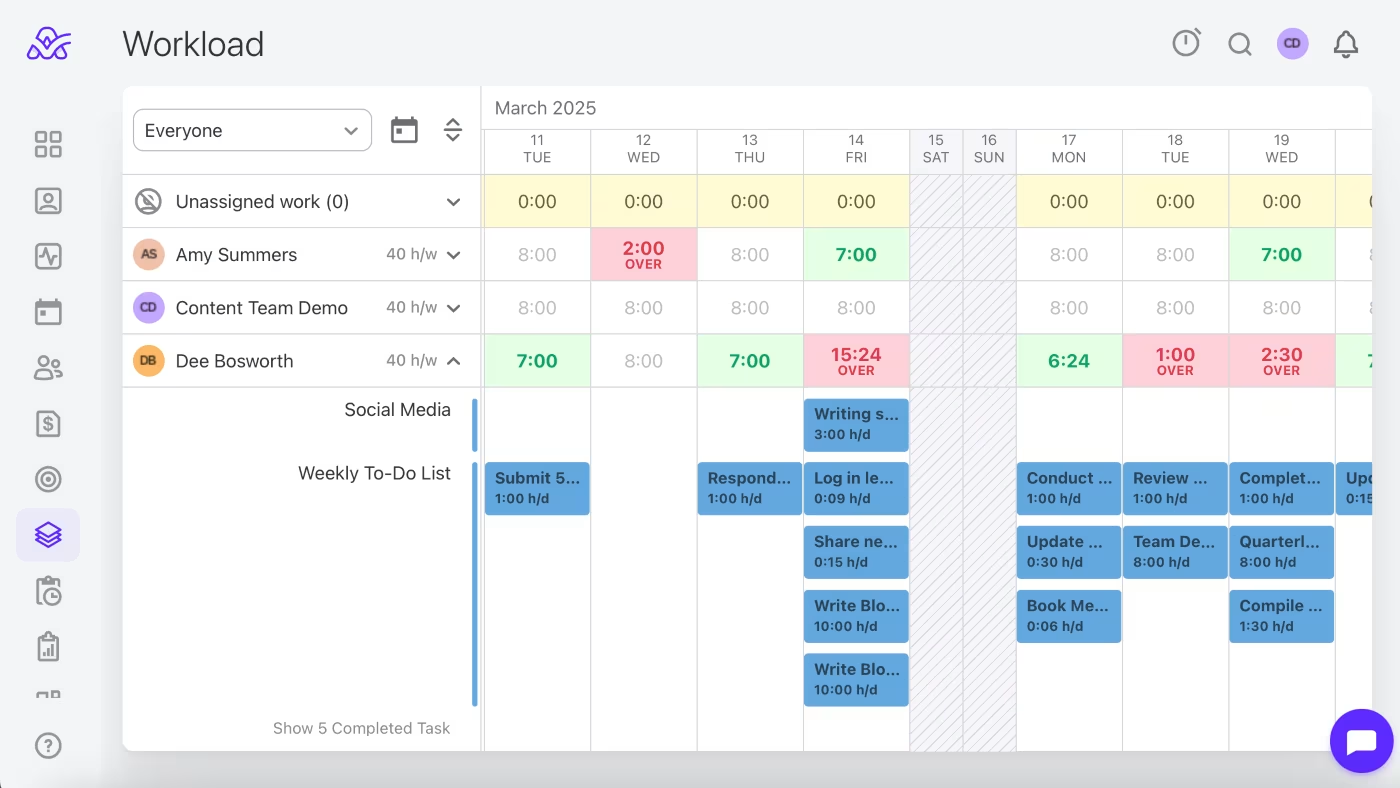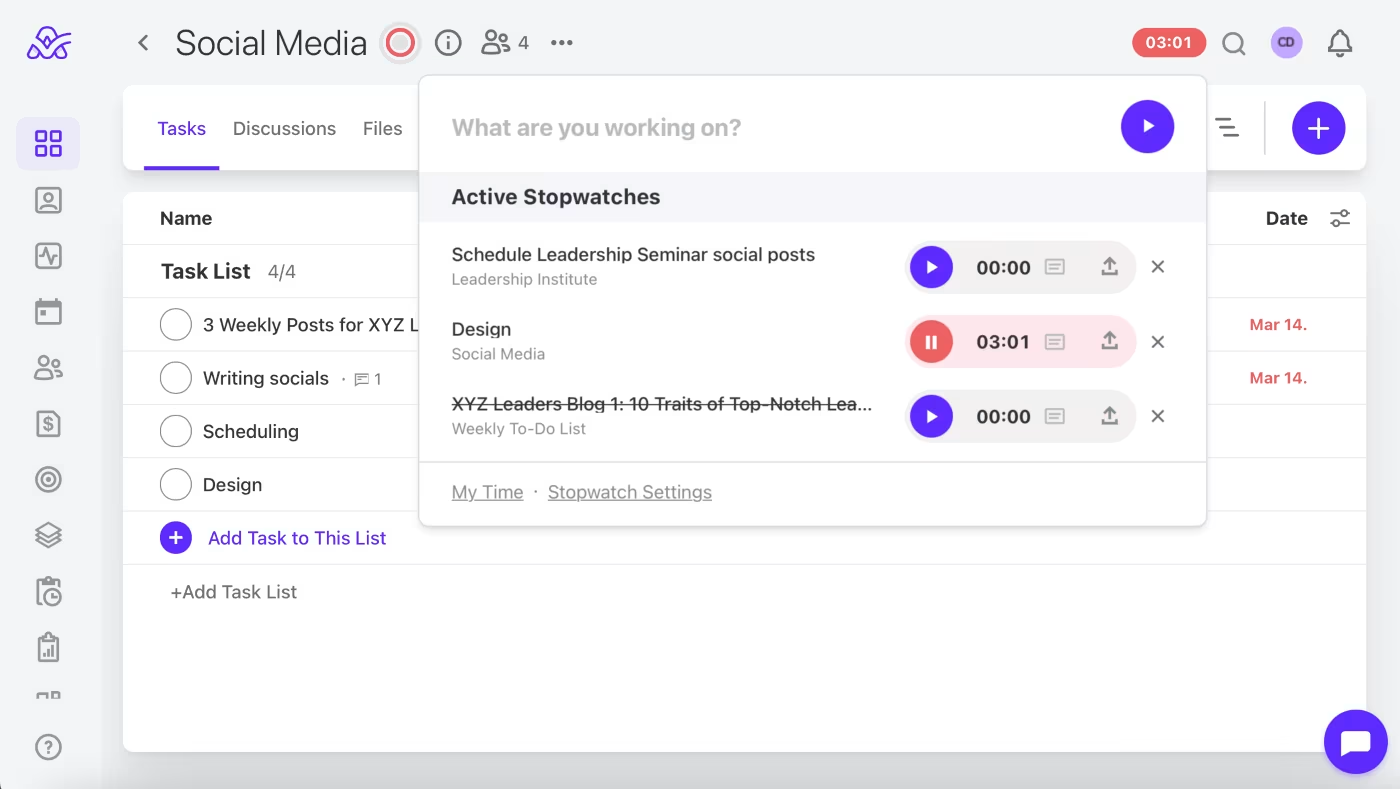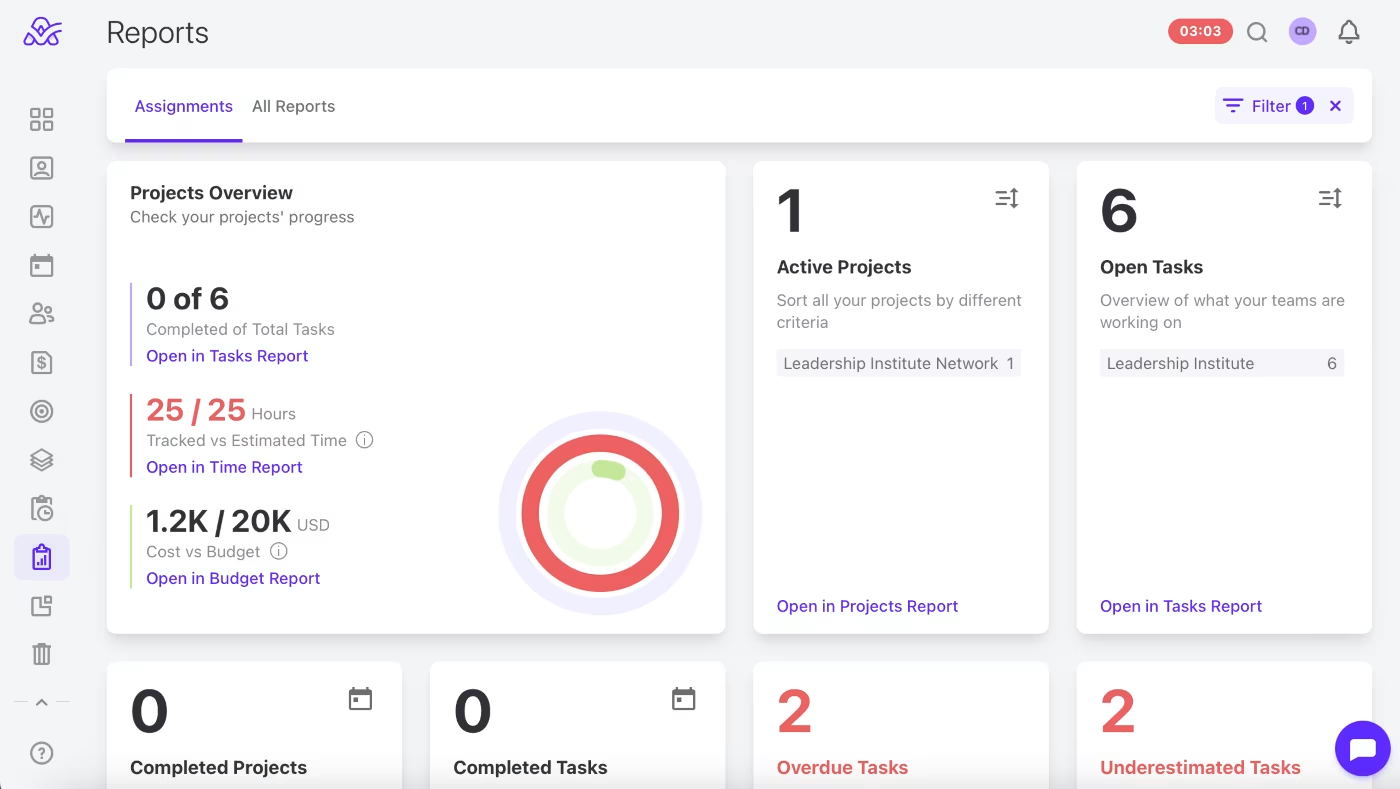According to a survey of 2,000 U.S. knowledge workers, they spend only 44% of their workweek doing their primary activities. That basically means that their core activities take a backseat to stuff like meetings and emails. And it’s all because of poor time management.
The most worrying thing about poor time management is that so many businesses tend to overlook its actual impact. Sure, missed deadlines and diminished productivity are obvious results, but there are plenty of others.
And while large businesses and enterprises can afford to kick the can down the road and ignore the negative effects of time mismanagement, your agency, SME, or consultancy can’t.
Each project and each client is vital, which is why today we are looking into the most common causes of time mismanagement, as well as ways in which it impacts agencies, including yours.
What Are the Main Causes of Poor Time Management?
Once you reach a point at which poor time management begins to affect your agency’s bottom line, client relationships, and team dynamics, you will definitely start to wonder: How did we get here?
We suspect that the answer to the question above lies in the following usual suspects:
Lack of priorities: It’s really to get caught up in emails, meetings, calls, and putting out the day-to-day fires. Once that happens, your high-value tasks get pushed aside because your team doesn’t have its priorities figured out.
Inadequate planning and scheduling: Creating a detailed project plan is a must, otherwise, you run the risk of inaccurate time estimates, actual deadlines, and miscalculating how much buffer time you need.
Taking on too many projects and/or clients: It’s totally fine that you want to keep your clients happy and to keep your agency growing at the same time, but there comes a point at which you have to say “No” to new projects.
Inefficient workflows and processes: If your workflows involve too many meetings or team members waiting around for feedback or approval, you are letting time slip through your fingers every single day.
Procrastination: This leads to heightened stress, anxiety, and possibly subpar quality. Usually, this is due to team members feeling overwhelmed or unsure of how to do their tasks.
Poor delegation: One of the key traits of being a good manager is knowing when to delegate and to which person. If you are doing everything yourself, it’s usually a sign that you don’t trust your team to do it right.
Underestimating task complexity: Some tasks end up taking much longer than anticipated and end up eating into your team’s deadline.
Lack of time tracking: Tracking time manually instead of using employee time tracking and productivity tools like ActiveCollab can lead to errors, delays, and inaccurate estimates.
9 ways in which poor time management is harming your agency
Now that we know some of the most common causes of poor time management, let’s take a look at how it really impacts your agency. According to research, 82% of people surveyed don’t have a time management plan in place, nor do they use time management techniques.
You and your team probably fall into this majority by encoutering common time management problems, which is why you need to pay attention to the following tell-tale signs of poor time management in your organization:
Financial losses and budget overruns
Here’s the thing about poor time management: it’s not just frustrating, it’s also expensive. Every single distraction, redundant meeting, or unoptimized process in your agency wastes time you can’t get back, and more importantly, time that you can’t bill to a client.
It might be an hour here or a few hours there, but once they add up, they will affect your bottom line. And if you try to mitigate the financial impact, there are only two ways in which you can do it: having your team make up for it or billing your clients. It’s a lose-lose situation.
And if blowing through your budget becomes a pattern, your clients will start to look elsewhere, whether it’s due to additional costs, missed deadlines, or deliverables that were done in a rush.
Lower quality of work
Nobody likes to work under the gun, but that’s what happens when you or your team members scramble to get everything done at the last second. And when that happens, it’s usually the quality of your agency work that suffers.
Here is how poor time management impacts the quality of your projects:
- More errors: With everyone rushing to get everything done at the very last moment, mistakes start to creep in. For example, clients get content that hasn’t been edited thoroughly, designs that are sloppy, or inaccurate data.
- Lack of strategy: If your team is always in crisis mode, there is not much time left for them to look ahead, or for you to think about how you can improve your team’s approach down the line.
- Burnout: When your employees are overworked and under constant pressure, they will inevitably make mistakes, which leads to people taking time off to recuperate or leaving altogether, along with your clients.
Decreased productivity and efficiency
Another consequence of poor time management that occurs all too often is a dip in your team’s productivity and efficiency. Whether it’s busy work, too many meetings, or constant context switching and multitasking, the end result is the same: less time for critical high-value tasks.
With ActiveCollab, you can put an end to most issues related to poor time management because it’s a productivity workspace built to handle all the productivity and resource planning aspects of your projects, manage your team's workload, improve their productivity, and generate accurate time reports.
With the Workload feature, you can get a clear overview of what your team is working on for up to a year in advance, as well as identify when members of your team are behind on their tasks, or when they have a day off.

You can also see which team members are overwhelmed and which are underutilized, so that you can distribute the workload more fairly and keep the team chemistry intact.
You can get a better idea about the Workload feature in this video:
ActiveCollab also comes with integrated time tracking software, which is very easy to use. You can track your team’s work on a task or project with just one click using the Stopwatch functionality.

The platform also enables you to access both individual and team timesheets, make edits, and keep track of the team’s true capacity. Last. but not least, you can also benefit from the Reports feature, which generates and exports detailed time reports per task, project, or client.
This enables you to not only report to your clients with greater accuracy, but also gauge your team’s true abilities and spot potential areas of improvement.

Poor customer satisfaction and retention
This is arguably the most harmful aspect of poor time management, because it’s something your clients will notice sooner, rather than later. They will notice the budget overruns, missed deadlines, and slow response times.
It eats away at their trust in your agency, frustrates them, and ultimately causes them to leave. And unfortunately, that’s not all of it, because time mismanagement also creates additional issues:
- Inconsistency all across the board Because your agency team is inconsistent when it comes to the quality of their work, replies, and deadlines, clients will not only feel less confident in your agency’s ability, but they will also feel like they are not a priority.
- Your reputation takes a hit: Just like positive word of mouth can help you score new clients, negative word of mouth can harm your reputation in the industry and make it harder for you to score new projects.
- Your clients lose money: If your delays cause clients to experience loss of revenue or any other setback in their core activities, they will be very hesitant to rely on your agency in the future.
Increased stress and burnout
So far, we’ve established how poor time management affects your agency’s revenue, as well as your clients. The bad news is that it also affects your team, and because they are the engine that keeps your business running, it affects the agency as well.
Here is how bad your team can have it as a result of bad time management:
- Constant work: By this, we mean workdays that last longer than expected, where there is no down time in the day, and burnout starts to set in.
- Low morale and employee retention: When every day becomes a battle against the clock and deadlines, people are going to look for a way out of it, and even if they don’t, they will be less motivated and engaged.
- Health issues: When non-stop stress and burnout become the norm, it will begin to chip away at your team members’ physical and mental health, causing anything from sleep issues and anxiety to more serious health issues.
Missed growth and revenue opportunities
Even if you have somehow managed to avoid the previously mentioned pitfalls of poor time management, this is where it’s most likely to catch up with you.
Growing your agency is just as important as making sure it’s operational, and if you are constantly struggling to meet deadlines and keep your clients happy, you are never going to be able to focus on growth and pursue new opportunities for your agency.
Here is what else you might be missing out on due to managing your time poorly:
- No new clients: If your team is drowning with your existing clients, it’s never going to be able to get new clients or projects, at least not without risking employee burnout or subpar work.
- Lack of innovation: In order to grow, you and your team need time, energy, and motivation to brainstorm, bounce ideas off each other, strategize, and process the solutions you come up with. But, it’s never going to happen if you don’t have time to look at the big picture.
- Missed revenue opportunities: Not being able to score new or huge clients means a direct loss of revenue, as well as missing on out on the opportunity to expand your operations and become a bigger player in the market.
Lack of work-life balance
Everyone speaks about work-life balance and how crucial it is to employee well-being, job satisfaction, and productivity. Well, it also takes a hit as a result of time mismanagement.
And we aren’t just talking about burnout and never-ending work day, but also the personal cost you and your team members might experience. By this, we mean your relationships outside of work.
If you are forced to push aside the time you spend with your friends and family, hobbies, or leisure activities, it’s going to put a strain on your interactions with them, as they will view you as unreliable or disrespectful of their time.
Plus, the job you used to love now becomes the main generator of stress in your life, and you start to resent it.
Loss of competitive edge
Large enterprises can afford to keep things the same and just coast, but small businesses and agencies can’t. You need to take advantage of every opportunity that comes your way.
In other words, you and your agency need to be flexible and able to adapt quickly to changing market trends and turn them into opportunities for revenue growth, innovation, or even partnerships.
If your competitors can manage their time better, they are already ahead of you, which means potential loss of revenue, as well as decreased market share.
Agencies operate in industries where speed and efficiency matter, which is why getting on top of time management can mean the difference between success and failure.
Erosion of company culture
In order to have a healthy company culture, everyone on the team, and we do mean everyone, needs to be happy. But, if even if there is a single team member that’s been negatively affected by poor time management, it can create a ripple effect throughout your entire team and agency.
Here is how:
- Lack of collaboration: When everyone is too busy fighting to meet the deadline and keep their job, there isn’t much room left for collaboration, brainstorming, mentorship, or even camaraderie.
- Employee disengagement and turnover: Constant state of alert can cause your team members to become overwhelmed and actively disengaged and on the lookout for new jobs.
- Toxic work environment: With tension and stress at an all-time high, conflict becomes a regular occurrence and leads to resentment, and the entire atmosphere inside the team turns from collaborative to hostile.
Conclusion – Leave poor time management behind with ActiveCollab
Poor time management is silent but deadly, as it can corrode your agency in multiple ways, causing you to miss new opportunities, miss deadlines, and lose your competitive edge.
And on top of that, it’s not just an internal issue. It spreads in all directions, and it impacts team members, the entire team, your agency, and even your clients. But, businesses that decide to invest in time tracking and workload management software can still regain control over their reputation and bottom line.
With ActiveCollab and its time management features, poor time management becomes a thing of the past, and your team can focus on doing what it does best. No delays, no missed deadlines, and no burnout.
Sign up for our 14-day free trial, or book a demo, and say goodbye to poor time management and missed opportunities with ActiveCollab!

